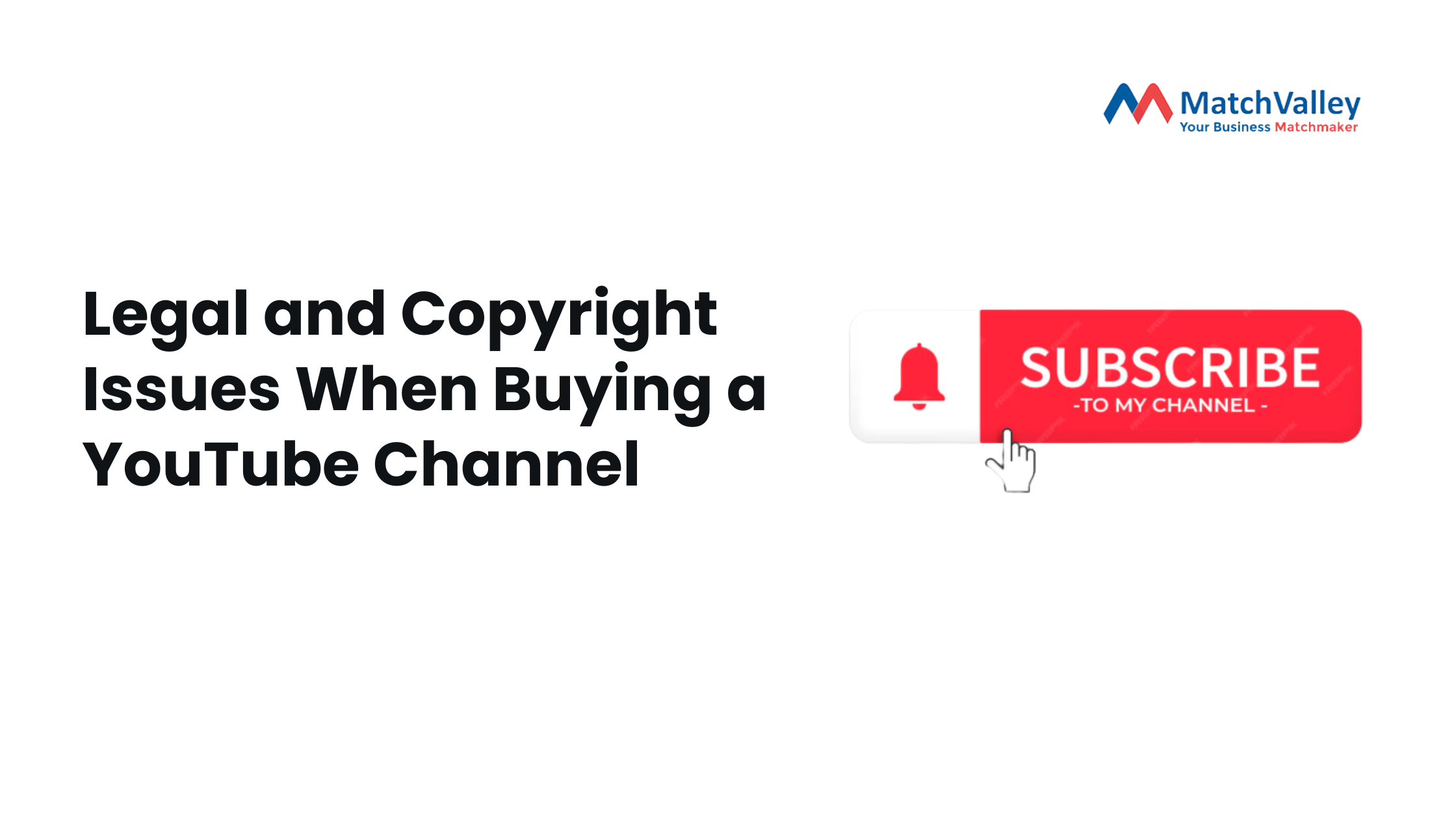The digital economy has opened doors to unique investment opportunities, and YouTube channels are now being treated like valuable digital assets. With millions of subscribers, monetization potential, and brand partnerships, buying an established channel can seem like a fast-track to success. However, before making such a purchase, it is crucial to understand the legal and copyright issues involved. A lack of awareness can expose buyers to lawsuits, demonetization, or even permanent channel termination.
This blog explores the major legal and copyright considerations you must evaluate when deciding to buy a YouTube channel.
1. Ownership and Transferability of a YouTube Channel
Unlike physical businesses, YouTube channels are tied to Google accounts. This creates complications in ownership transfer. Google does not provide an official marketplace for channel buying and selling, which means transactions often happen privately or through third-party brokers.
Key ownership issues to check:
- Brand Account vs. Personal Account: Channels linked to a Brand Account can have multiple managers, making transfer easier. If it is tied to a personal Google account, the seller will need to hand over full access.
- Contractual Agreement: Ensure the sale is backed by a legal contract clearly defining what is being transferred (login credentials, linked AdSense account, intellectual property, etc.).
- Verification with Google Policies: Buying or selling a channel may violate YouTube’s Terms of Service if done without transparency. Buyers must accept the risk of potential policy enforcement.
2. Copyright Risks in Existing Content
Copyright is the most pressing legal issue in channel acquisitions. Even if a channel has millions of views, its videos may contain copyrighted material that was uploaded without proper licenses.
Areas to examine carefully:
- Music Licenses: Many creators use background music or sound effects from libraries that require ongoing licensing. Check whether the seller has lifetime rights or only temporary usage rights.
- Footage and Images: Stock videos, film clips, or photos might be licensed to the original creator only, not transferable to you.
- Content ID Claims: Channels with multiple unresolved copyright claims risk demonetization or strikes. Review the channel’s copyright strike history before purchasing.
A copyright audit before purchase is essential to avoid costly takedown notices or lawsuits.
3. Trademarks and Branding Issues
Beyond video content, branding elements of a channel can also raise legal issues:
- Channel Name: Does the name infringe on an existing trademark? For example, a tech channel named “Apple Reviews” could be legally challenged by Apple Inc.
- Logos and Graphics: Custom designs might have been created by freelance designers. If intellectual property rights were not transferred to the seller, the buyer may not legally own them.
- Merchandising Rights: If the channel has a merchandise line, confirm that designs and brand elements are legally cleared.
A trademark search should be part of the due diligence process.
4. AdSense and Revenue Transfer Challenges
Monetization is often the main reason to buy a channel. But transferring revenue streams is tricky:
- AdSense Account Ownership: AdSense accounts are not transferable. The new owner must link their own AdSense to the channel. If the channel has a history of invalid traffic or policy violations, Google may deny monetization.
- Affiliate Links and Sponsorships: Ensure that existing sponsorship contracts are either transferable or renegotiated under your ownership.
- Pending Payments: Clarify how pending YouTube ad revenue will be handled at the time of sale.
A clear financial settlement agreement avoids disputes after purchase.
5. Privacy and Liability Concerns
Buying a channel means inheriting not just its content but also its liabilities.
- Defamation Risks: Older videos may contain controversial content that could attract legal complaints in the future.
- Privacy Violations: Videos using private footage without consent may lead to lawsuits even years later.
- Community Guidelines Strikes: Review any history of strikes for hate speech, misinformation, or harmful content. Too many strikes could lead to sudden termination.
Always consult a legal professional to evaluate these risks.
6. Practical Steps for Buyers
If you are planning to buy YouTube channel assets, here’s a checklist:
- Conduct a Legal Audit: Review copyright, trademark, and licensing issues with a lawyer.
- Request Documentation: Ask the seller for written proof of licenses, logo ownership, and content rights.
- Sign a Transfer Agreement: Draft a legally binding contract outlining assets, liabilities, and financial terms.
- Check Policy Compliance: Ensure the channel follows YouTube’s monetization policies and community guidelines.
- Secure Payment Safely: Use an escrow service to protect both buyer and seller during the transaction.
Conclusion
Buying a YouTube channel may look like a shortcut to digital success, but without legal safeguards, it can become a risky gamble. Issues around copyright, trademarks, revenue transfer, and community guideline compliance must be addressed before finalizing a deal. By conducting proper due diligence and securing legal agreements, buyers can protect themselves from future disputes and build a sustainable digital business.




